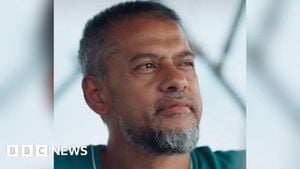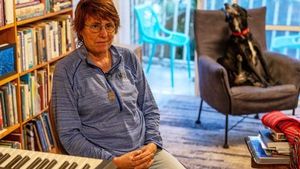A recent case in Spain has reignited fierce debate surrounding euthanasia and individual rights in the face of suffering. A judge in Barcelona authorized the euthanasia of Noelia, a 24-year-old woman who has endured tremendous pain and suffering due to a tragic past. Advocates supporting her right to die argue that her decision reflects a profound understanding of her circumstances, while opponents raise significant ethical and moral questions about the implications of her choice.
Noelia’s traumatic journey began in 2002 after she experienced multiple rapes followed by an attempt on her own life, which resulted in complete paraplegia. Despite her debilitating condition, which included chronic pain and suffering, she sought the right to die under Spanish law. The euthanasia procedure was scheduled for August 2, 2024, marking a pivotal moment in Spanish legal history since it stood as one of the first cases to challenge the newly instituted euthanasia law approved in March 2021.
However, her parents, supported by the advocacy group Abogados Cristianos (Christian Lawyers), launched a contentious appeal against her decision. They contended that Noelia's mental health condition, including borderline personality disorder and previous suicide attempts, diminished her capacity to make such a crucial choice. Polonia Castellanos, president of Abogados Cristianos, argued that the young woman was not in a state to consent, claiming, "Her decision is solely influenced by her mental disorder that leads to suicidal thoughts." This assertion poses a significant challenge to the principle of autonomy foundational to the euthanasia law.
The court ultimately rejected the appeal from Abogados Cristianos, determining that Noelia’s choice was valid and made with sufficient understanding of her own situation. This ruling emphasized the need for respect towards individuals' wishes, particularly when they have reached a mature and informed decision about their own suffering. Nevertheless, the organization indicated that they would continue to pursue the case through further legal channels, asserting their belief that the law should safeguard individuals with mental health issues against making irreversible decisions.
Public reaction to the case has been polarized, reflecting deep societal divides on matters of life and death. Some commentators have expressed concern that the appeal by Noelia's parents represents a broader ideological battle over the sanctity of life, questioning whether religious beliefs should take precedence over personal choice. The discussion has implications beyond Noelia’s case, affecting future legal considerations surrounding euthanasia in Spain.
As the case captures national attention, many are asking critical questions about the intersection of law, ethics, and personal autonomy. The fear among some circles is that a legal precedent set against Noelia’s will could impose unyielding standards on others facing similar situations, stripping individuals of their agency.
On the other hand, the deeply emotional nature of her story compels many to empathize with the agony wrought by her condition—a sentiment echoed by those supporting her right to a dignified end. A writer reflecting on the situation asserted: "Placing ideology or religion above human suffering is a grievous error." This sentiment resonates with a growing call for compassion in matters of personal choice regarding life and death.
The history of euthanasia requests in Spain has shown a gradual increase since the law's enactment, with over 1,500 requests recorded by the end of 2023. Out of these, 334 procedures were carried out in the same period, primarily among older individuals suffering from terminal illnesses. This trend signifies a shift in societal attitudes towards euthanasia, highlighting an urgent need to address the complex moral and ethical questions at play.
Critics of Abogados Cristianos have noted instances of alleged pro-life tactics employed in support of their position, including claims that the organization attempted to intimidate Noelia personally—an act that some view as a violation of her rights. Reports detail that representatives of this advocacy group allegedly entered Noelia’s hospital room, surrounding her with religious items in a bid to alter her mindset regarding the euthanasia she sought.
In an opinion piece, it was noted that those leading the opposition often fear death, arriving at the conclusion that imposing their beliefs on others is justified under their interpretation of morality. While some consider the involvement of such ideological frameworks valid, many others push back against such encroachment upon individual freedoms. This tension reveals a broader cultural discourse on whether personal autonomy should yield to collective belief systems.
As society grapples with the implications of this case, many are left contemplating rival ideas of what constitutes a "good death." Are statutory safeguards enough if they do not consider unique personal circumstances like those faced by Noelia? Opponents worry that if ideology dictates such decisions, it could lead to a regression in personal liberties offered under the law.
Ultimately, the drama surrounding Noelia’s case underscores the urgent need for ongoing discussions about euthanasia laws in Spain. How society approaches these complex issues may well shape future generations’ rights to exercise agency over their own lives, especially at times of unparalleled suffering. It is a question of humane considerations against dogmatic stances—a conversation already well underway in many corners of society.






